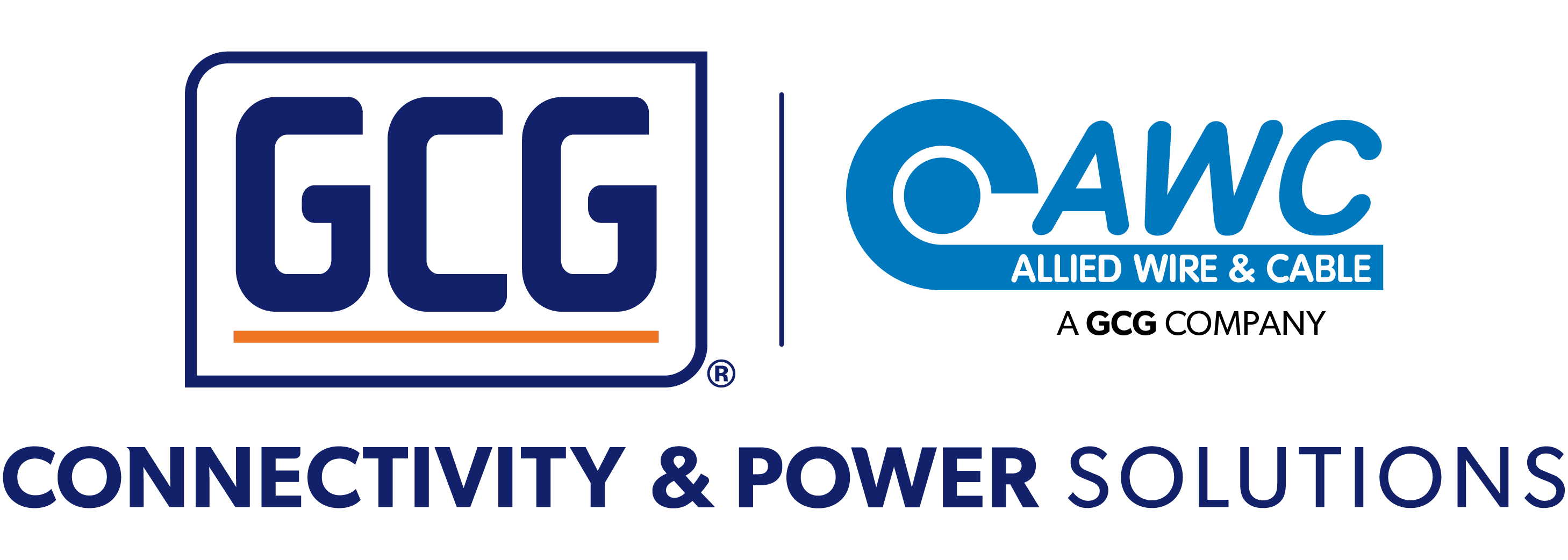Essential components in many electrical and electronic applications, Allied Wire & Cable stocks a wide range of hook-up and lead wires for your next wiring project. Our hook up appliance wires are commonly used in electronics and telecommunications as a reliable and compact way to connect components to enable the efficient and safe transfer of signals and power. Our hook-up and lead wires also have high abrasion and heat resistance, making them suitable to a wide range of internal wiring applications. To learn more about our selection of hook-up and lead wires, contact us today to discuss your next internal wiring project.
Hook-Up wire Construction
Hook-up wire can use solid/stranded conductors, ranging from 26AWG to 1000MCM with common materials like soft annealed copper, tinned copper, & aluminum.Most hook-up wires have a single conductor and a layer of insulation. A few types have an outer protective jacket and some have multiple conductors. Hook-up wire can use solid or stranded conductors. Sizes go from 26 American Wire Gauge (AWG) through to 1000 MCM. Common conductor materials include soft annealed copper, tinned copper, and aluminum.
Insulation
Common insulation materials for hook-up wire include polyvinyl chloride, cross-linked polyethylene, synthetic rubber, and fluorocarbons.
- Polyvinyl chloride: PVC is thermoplastic insulation that’s popular, tough, and offers good chemical resistance. Depending on the manufacturing process used, PVC wire insulation may be either relatively stiff or soft and flexible.
- Cross-linked polyethylene: Another common insulation material, XLPE has excellent mechanical and electrical properties and, being a thermoplastic material, doesn't shrink when you cut or solder the wire. You can use XPLE insulated wire in switchboards, conduits, and raceways.
- Synthetic rubber: Synthetic rubber has good abrasion resistance, high strength, and exceptional insulation properties. Examples of synthetic rubber insulation include neoprene, silicone, Hypalon, and ethylene propylene diene monomer (EPDM).
- Fluorocarbons: Synthetic fluorocarbon insulation materials include polytetrafluoroethylene (PTFE) and ethylene tetrafluoroethylene (ETFE). Both can withstand up to 200 degrees Celsius depending on the wire specification and have excellent chemical, oil, and abrasion resistance.
Jacket
Most hook-up wires don't have jackets, except in some instances for additional external protection.
What is hook-up wire used for?
You use hook-up wire for internal wiring of electrical and electronic equipment. Examples include appliance wiring, automotive wiring, electrical switchboards and control panels, machine tools, computers, and electronic devices.
Points to Note When Selecting Hook-up Wire
Allied Wire & Cable (AWC) stocks a broad range of hook-up wires, and it's important to select the correct type of wire for your application.
National Electric Code
Electrical wiring that falls within the remit of the National Electrical Code (NEC) should comply with the appropriate standard. Examples include TFFN and THHN wire for use in raceways and conduits, MTW wire for machine tools, and SIS switchboard wires.
Standards Approvals
Many applications require conformance to the UL Appliance Wiring Materials 758 Standard or the relevant Canadian Association Standards. You will find relevant UL types listed under each wire type, or you can use the search box to find hook-up wire that meets specific UL standards. The same principle applies to wire complying with the European Restriction of Hazardous Substances Directive (RoHS) and MIL-Spec wires.
Conductor Material
Stranded conductors are flexible, while solid conductors hold their shape and make for secure screwed connections. Pure annealed copper is easy to work with, while tinned copper has better corrosion resistance. Aluminum wire weighs less, although you must compensate for its lower conductivity. Because aluminum is soft with a tendency to flow, you should take particular care to ensure connections are secure.
Insulation Qualities
Most insulation materials have good resistance to chemicals and oils, while some like PTFE also resist mold and ultraviolet radiation. Also, consider abrasion resistance and flexibility when selecting hook-up wires.
Temperature Rating
Check the maximum allowed temperature of the hook-up wires you use. Most wires can handle a maximum temperature between 80°C and 90°C, although some types, including XHHW wire, have a lower maximum allowable temperature of 75°C in damp conditions. Choose PTFE and ETFE wire for use in high-temperature applications between 150°C and 200°C.
Voltage Rating
Be careful to check the maximum voltage for the type of wire you're using as it does vary. For example, PVC insulated UL 1015 wire handles 600 volts, whereas the similar UL 1065 wire has a maximum rated voltage of 300 volts. The maximum voltage for UL 3265 XLPE wire is 150 volts. Contact your nearest sales office for help and advice on choosing the right hook-up wire or email us.

